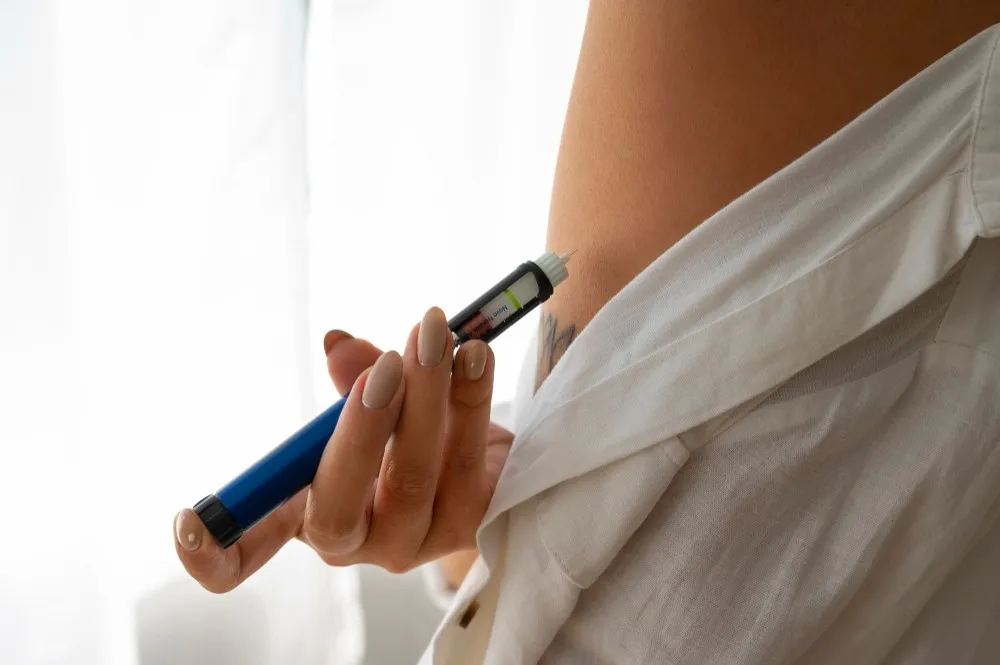What complications are caused by diabetes?
Over a period of time, there are not-so-pleasant changes brought by diabetes in the body that may affect vital organs like the heart, eyes, kidneys, nerves and other organs, these associated conditions are termed as 'complications.' Diabetes in itself may not trouble a person so much as compared to these complications which have the potential to even put life at risk, in the long run.
Here is a brief overview of 5 complications and other associated conditions with diabetes:
1. Skin complications
Diabetic patients are more prone to skin problems like dermopathy, blisters, necrobiosis lipoidica diabeticorum and eruptive xanthomatosis. In fact, skin problems are sometimes the first sign that a person may have diabetes.
- Acanthosis Nigricans is characterized by appearance of tan or brown areas around the neck, armpits, groin, hands, elbows and knees. It is usually a condition affecting diabetics who are overweight.
- Diabetic Dermopathyoccurs due to changes in the small blood vessels which results in light brown, scaly patches in oval or circular shapes in front of the legs.
- Necrobiosis Lipoidica Diabeticorum is similar to diabetic dermopathy, the only difference being that the scars start as dull, red, raised area and become shiny with a violet border. Blood vessels underneath skin become visible. These may be itchy and painful.
- Diabetic Blisters (Bullosis Diabeticorum) are rare but may occur as large painless sores on the backs of fingers, hands, toes, feet, legs or forearms.
- Eruptive Xanthomatosis appears to be a hard, pea-like itchy bumps on the skin at the backs of hands, feet, arms, legs and buttocks. Usually, this occur with people who have high cholesterol and fat in the blood.
2. Eye Complications
Eye complications are common in diabetic patients who do not keep their blood sugar levels in control. People who have consistently high blood sugar levels are 4 times more prone to glaucoma, cataracts and even diabetic retinopathy. All of these conditions, if left untreated, may lead to vision loss and blindness.
3. DKA (Diabetic Keto-Acidosis) & Ketones
This is a very serious and dangerous condition in diabetic patients. In the absence of adequate glucose, body cells begin to burn fat for energy which produces ketones. Appearance of ketones in urine is a danger signal that your diabetes is out of control and that you are developing a life threatening illness. Frequent urination, constantly dry mouth, tiredness, dry skin, fruit breath and nausea/vomiting are some of the associated symptoms. If ignored, this may lead to coma and even death.
4. Kidney Disease (Nephropathy)
Diabetes causes by too much stress on the kidneys, causing it to filter too much blood. All this extra work breaks down the kidney's filtering mechanism and over time, the kidneys begin to leak useful protein through urine. Appearance of small amounts of protein in the urine is called 'microalbuminuria' and larger amount of protein is known as 'macroalbuminuria'.
When detected in later stages, kidney disease becomes end-stage renal disease (ESRD), in which case, waste products began to build up in the blood ultimately leading to kidney failure. When this condition occurs, the patient is either put on dialysis or has to go for a kidney transplant. Those with high blood pressure and high blood glucose levels are prone to kidney diseases. The symptoms are fluid retention, sleeplessness, poor appetite and excessive weakness.
5. Heart diseases
Risk of heart diseases is higher in diabetic patients. High blood glucose levels are linked to high blood pressure which increases the risk for heart disease, stroke and other heart troubles.
The correlation between diabetes, heart disease, and stroke is evident in number of cases.
High blood sugar levels put pressure on almost all major organs of the body - kidneys, heart, skin, eyes etc. So if you suffer from diabetes, don't ignore the condition but follow a treatment plan that allows other systems to function properly. If your body is showing any of the above symptoms, share your symptoms with us on our virtual diabetes clinic & our in-house doctors will help answer your doubts- all for free!

Reviewed by







